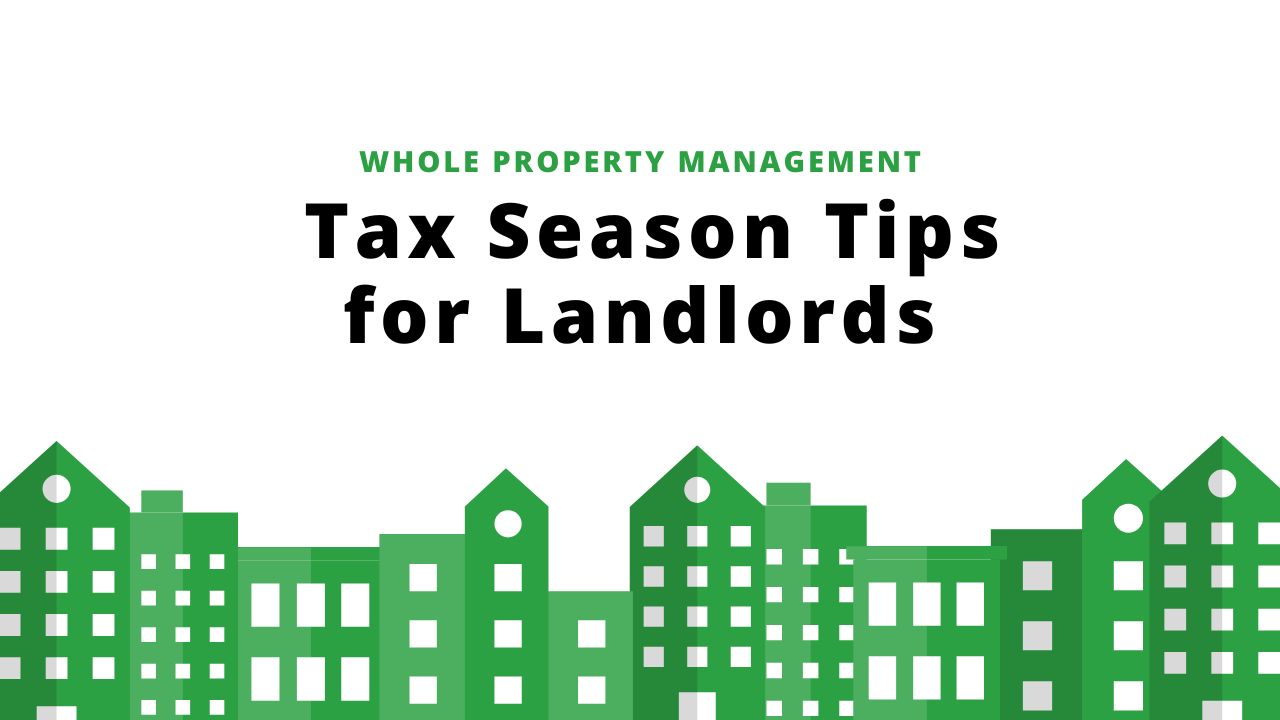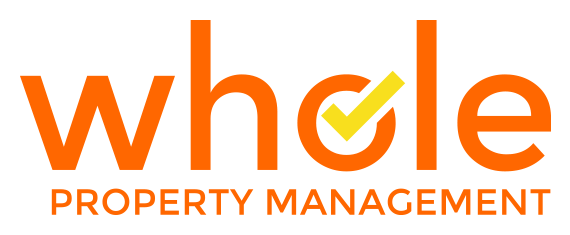Tax Season Tips for Landlords

Are you dreading tax season, wondering if you’ve maximized your deductions or overlooked critical filings? As a landlord, tax season isn’t just about crunching numbers—it’s about ensuring your hard-earned rental income is working for you, not against you.
With multiple expenses, depreciation rules, and ever-changing tax regulations, it’s easy to feel overwhelmed. But with the right approach, tax season can become an opportunity rather than a burden.
Understanding key deductions, organizing financial records, and planning ahead can significantly impact your bottom line. In this guide Whole Property Management, will break down essential tax tips to help you minimize liabilities, maximize savings, and navigate tax season with confidence.
Understanding Your Tax Obligations as a Landlord
Taxes can feel overwhelming, but as a landlord, knowing what you owe (and what you can save) is essential to keeping your rental business profitable. The IRS considers rental income taxable, meaning you must report it each year.
But it’s not just about the income—you may also be responsible for property taxes, self-employment taxes (if managing rentals full-time), and capital gains tax if you sell a property.
The key is to stay ahead of deadlines, understand your obligations, and take advantage of tax breaks where possible. A well-organized approach now can save you from surprises later.
Essential Tax Deductions Every Landlord Should Know
Why pay more in taxes than you have to? The good news is that many of your rental property expenses are tax-deductible.

These include mortgage rate interest, property repairs, insurance, property management fees, legal and accounting costs, and even travel expenses if you visit your rental properties.
One of the biggest tax-saving tools is depreciation, which lets you deduct a portion of your property’s value over time. The key is to track all your expenses carefully—every dollar spent on operating and maintaining your rental could mean a lower tax bill.
How to Properly Track Rental Income and Expenses?
Good record-keeping is the foundation of tax savings. If you’re scrambling to gather receipts, you’re likely missing deductions. The best way to stay on top of things is to track income and expenses year-round.
A simple spreadsheet works, but property management software or accounting apps can make the process even easier. Keep records of rent payments, maintenance costs, utility bills (if paid by you), and any professional services like legal or accounting fees.
The more organized you are, the easier it is to file accurate taxes and maximize your savings.
Maximizing Depreciation Benefits on Your Rental Property
Depreciation is one of the best tax advantages for landlords, yet many don’t fully understand how to use it.
Since properties wear out over time, the IRS lets you deduct a portion of your rental’s value every year—typically over 27.5 years for residential properties. This means you can reduce your taxable income significantly, even if your property is gaining value.

The trick is to ensure you’re calculating depreciation correctly and applying it to improvements like a new roof or HVAC system. If you’re unsure how to maximize this benefit, consulting a tax professional can be a smart move.
Navigating Repairs vs. Improvements
Not all property expenses are treated the same when it comes to taxes. Repairs—like fixing a leaky faucet, replacing a broken window, or patching up drywall—can be deducted in full the same year you pay for them. These are considered necessary expenses to keep the property in good shape.
On the other hand, improvements—such as renovating or installing a new roof, upgrading the kitchen, or adding a deck—must be depreciated over time rather than deducted all at once. The key is understanding this difference so you don’t accidentally misclassify expenses and miss out on tax savings.
Understanding 1031 Exchanges and Capital Gains Tax Strategies
Thinking about selling one of your rental properties? Be prepared for capital gains tax, which applies to the profit you make from the sale. However, there’s a smart way to defer these taxes—a 1031 exchange.
This allows you to reinvest your profits into another rental property without paying taxes immediately. Essentially, as long as you keep upgrading to a similar or higher-value property, you can defer capital gains taxes indefinitely.

If you’re planning a sale, it’s worth looking into this strategy so you can keep growing your investment portfolio without taking a major tax hit.
Common Tax Mistakes to Avoid
Tax mistakes can be costly, and unfortunately, landlords often make a few common ones.
- Forgetting to report all rental income, including security deposits used for repairs.
- Failing to keep proper records, leading to missed deductions.
- Not taking full advantage of depreciation, which can significantly lower taxable income.
- Mixing personal and rental property expenses—always keep separate bank accounts.
- Lack of organization and tax knowledge, leading to costly errors.
Working with a Tax Professional: When and Why?
Taxes can get complicated, especially if you own multiple rental properties or deal with big transactions. While you might handle simple filings on your own, a tax professional can help ensure you’re maximizing deductions, filing correctly, and avoiding penalties.
They can also guide you on complex topics like depreciation schedules, 1031 exchanges, and capital gains strategies. Think of them as an investment—what you pay in tax prep fees could be far less than what they help you save. If tax time feels overwhelming, getting expert help can make a huge difference.
Bottom Line
Taxes don’t have to be a headache—when done right, they can actually help you maximize profits and grow your rental business. Whole Property Management is here to simplify the process, from tracking expenses to ensuring you claim every deduction available.
Whether you need guidance on depreciation, 1031 exchanges, or general tax strategies, our experts can help you navigate it all. Reach out today to discuss your options and find the best tax-saving approach for your rental portfolio.
